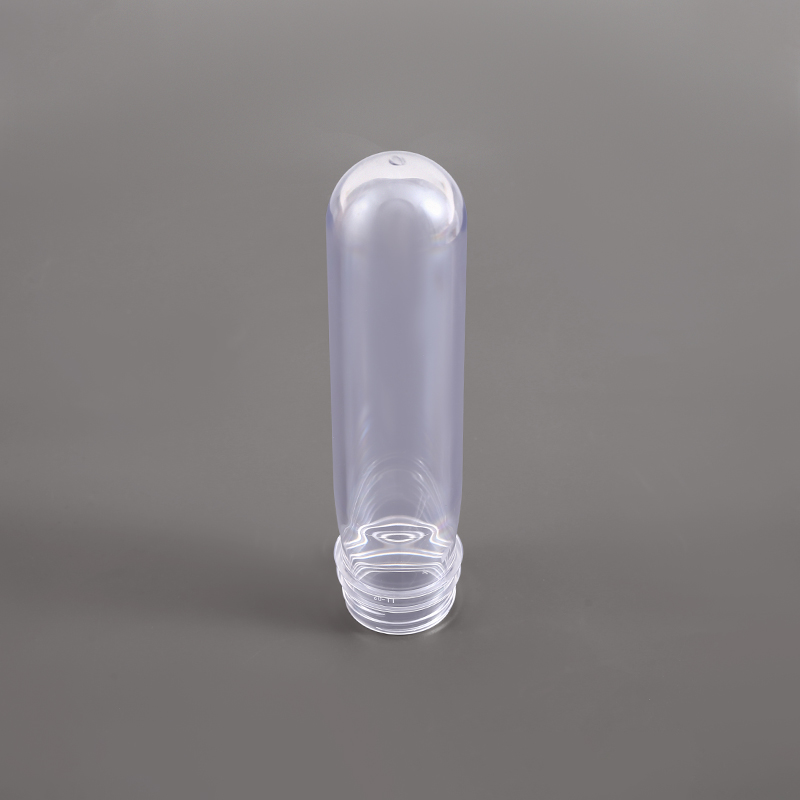Dimensional Accuracy and Tolerance Standards
One of the critical requirements for the 38mm PET Preform is dimensional accuracy. This includes precise specifications for neck diameter, thread design, wall thickness, and overall length. Industry standards such as those published by the International Society of Beverage Technologists (ISBT) or similar organizations often define acceptable tolerances for these parameters. Even slight deviations can issues in the blow molding process, leakage after capping, or incompatibility with automated filling systems. Therefore, manufacturers are expected to employ precise injection molding processes and rigorous quality control measures to meet these dimensional criteria.

Material Grade and Composition
The 38mm PET Preform should be produced using food-grade PET resin, particularly when intended for consumable products like juices, dairy, or water. This ensures that the preform does not release harmful substances into the contents of the final container. The resin must comply with standards set by regulatory bodies such as the U.S. Food and Drug Administration (FDA), the European Food Safety Authority (EFSA), or local equivalents. If recycled PET (rPET) is used, it must also meet specific purity and safety standards to be approved for food contact applications.
Thread and Closure Compatibility
To ensure effective sealing and compatibility with closures and caps, the thread pattern and sealing surface of the 38mm PET Preform must align with established industry standards. These include specifications for continuous thread finishes or snap-on closures, depending on the application. Failure to meet these standards can result in cap misalignment, leakage, or failure during transportation and storage. Many manufacturers rely on the SPI (Society of the Plastics Industry) and CETIE (International Technical Centre for Bottling) guidelines for designing and inspecting neck finishes on PET preforms.
Mechanical Strength and Performance Testing
The 38mm PET Preform must also meet standards for mechanical strength, including impact resistance, stress crack resistance, and load-bearing capacity. These characteristics are vital during transport, stacking, and end-use handling. Preforms are tested for their ability to withstand internal pressure (especially for carbonated beverages), resistance to deformation during blow molding, and durability in varying environmental conditions. ISO and ASTM standards often provide the frameworks for such mechanical property evaluations.
Thermal Stability and Processability
Thermal properties of the 38mm PET Preform must also be standardized to ensure reliable processing during stretch blow molding. The material must maintain consistent behavior under heating, with controlled crystallinity levels to ensure even wall distribution and desired bottle strength. Preforms that do not meet thermal stability standards may inconsistent bottle shapes, weak points, or even mold rejection. Manufacturers often conduct Differential Scanning Calorimetry (DSC) and Infrared Spectroscopy tests to verify thermal properties and polymer consistency.
Preform weight is another critical specification tied closely to performance and cost. The 38mm PET Preform should meet weight targets defined by design standards to ensure that the resulting bottles maintain structural integrity while reduce material usage. Weight standards are also essential for sustainable manufacturing and for reducing environmental impact. Deviations in preform weight can affect container uniformity, increase resin consumption, and cause issues during bottle forming or filling processes.


 English
English Español
Español 中文简体
中文简体